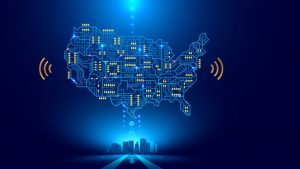The Federal Communications Commission (FCC) announced it will commit another $240 million in its eighth wave of the Emergency Connectivity Fund (ECF) program support.
After more than two months of angling and dealmaking, the House of Representatives voted to approve the $1 trillion Infrastructure Investment and Jobs Act – also known as the Bipartisan Infrastructure Framework – on November 5, sending the bill along with its $2 billion in cyber funding and $65 billion in broadband appropriations to President Biden’s desk for final approval.
New York City Mayor Bill de Blasio announced that New York City would spend the next three years building publicly-owned broadband infrastructure serving 1.6 million residents while partnering on immediate-term affordable internet connectivity for more than 250,000 residents.
In an effort to close the digital divide, AT&T announced it’s opening more than 20 learning centers across the country that will provide access to free digital devices, high-speed internet, Wi-Fi, and online educational content for underserved students.
Sens. Rob Portman, R-Ohio, Patty Murray, D-Wash., and Angus King, I-Maine, introduced a bipartisan bill that aims to close the digital divide and promote “digital equity” utilizing $250 million in annual grants, according to a press release.
As the state has shifted to distanced and hybrid learning during the COVID-19 pandemic, the New Jersey Department of Education announced it has closed the K-12 digital divide by using roughly $60 million in Federal funding.
The Baltimore City Council unanimously passed legislation to provide $3 million in emergency funding towards Internet access and computer equipment for the city’s children.
Detroit announced it will hire Joshua Edmonds as its first director of digital inclusion to help make computer and internet access more accessible to the city’s citizens.









